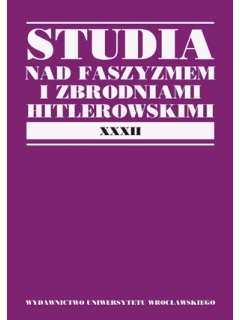

Articles

INTER-WAR EUROPE TOWARDS JÓZEF PIŁSUDSKI’S REGIME. INTERPRETATIONS OF “SELF-LIMITING DICTATORSHIP”
Józef Piłsudski’s Poland – particularly during 1926–1935 period – appeared to be a completely atypical and distinctively separate model of the state which was not a totalitarian dictatorship and which did not imitate Fascism but which at the same time possessed a charismatic leader. Although Polish state obviously was not a European superpower it was rather seen as a „new state” in the peripheral part of the continent, considerations on contemporaneous Poland were nevertheless relatively often and quite attentively undertaken in the West. Out of all attempts to understand and interpret Piłsudski’s phenomenon the most interesting ones appear to be those which pay particular attention to peculiar properties of „lenient dictatorship” in Poland. It can justifiably be claimed that these interpretations led to the establishment of separate scientific model of „self limiting dictatorship”. Polish state, governed in accordance with authoritarian principles, purposefully refrained from intervening in many spheres of social existence and respected many significant elements of political pluralism but overthrew the rule of power alternation. These were the most important features of indicated structural model. This type of dictatorship was a result of Piłsudski’s work. He deliberately tried to implement a model of „non-ideological rule” and decided not to build a single-party system. Although the year 1930 – the symbolic moment of which is the imprisonment of opposition Members of Parliament in Brest – at least partly undermined the validity of such interpretations, it still did not entirely abolish them. The careful collection of various evaluations of Polish political system during 1926–1935 period formulated by many Western observers seems to be an essential component of „Reborn Poland’s” image in the „eyes of the West”. The author of this article prepares an extensive monograph devoted to the latter subject which will be published in 2011.